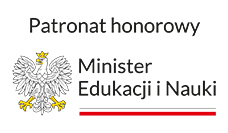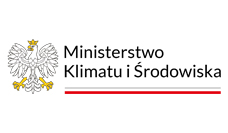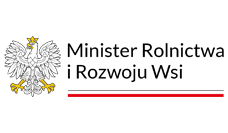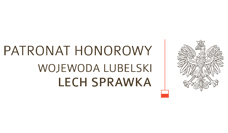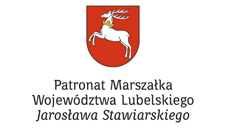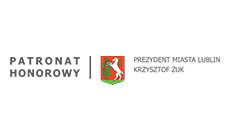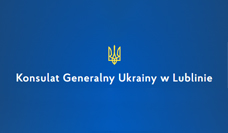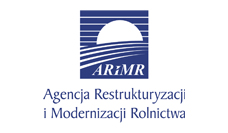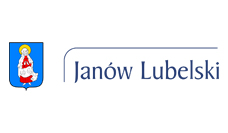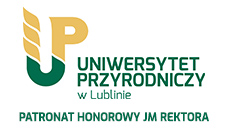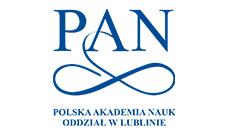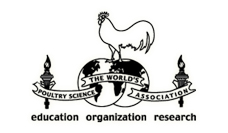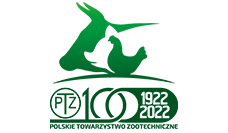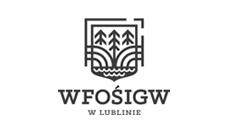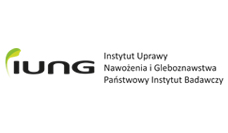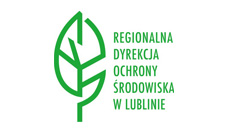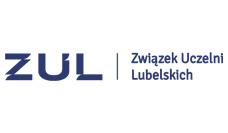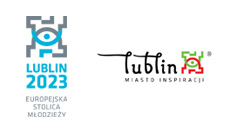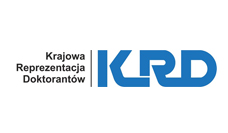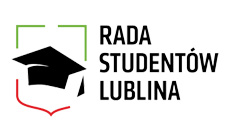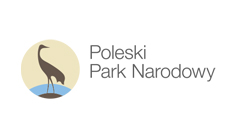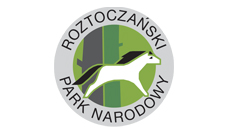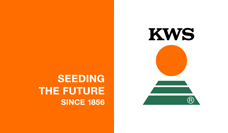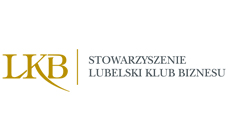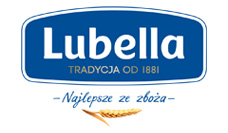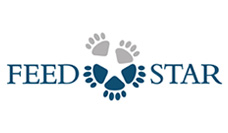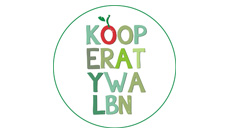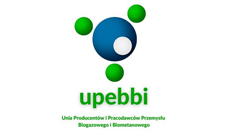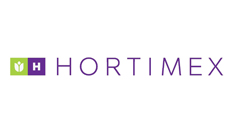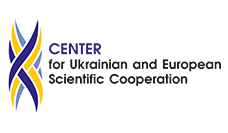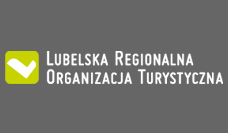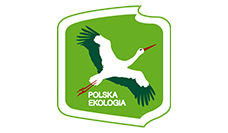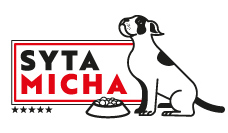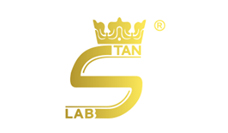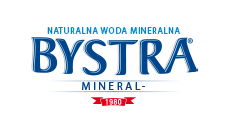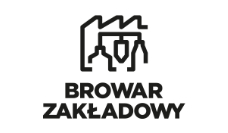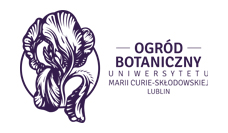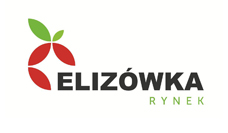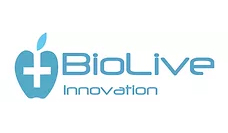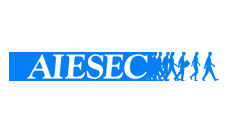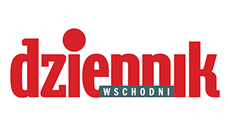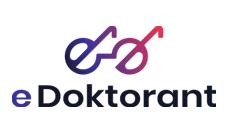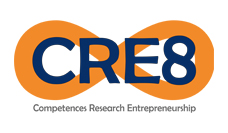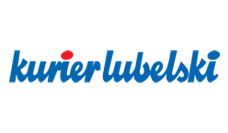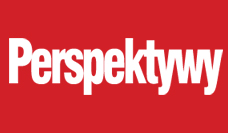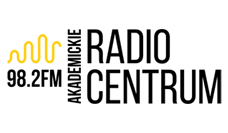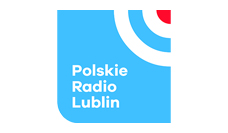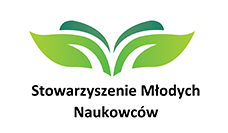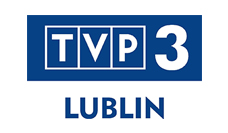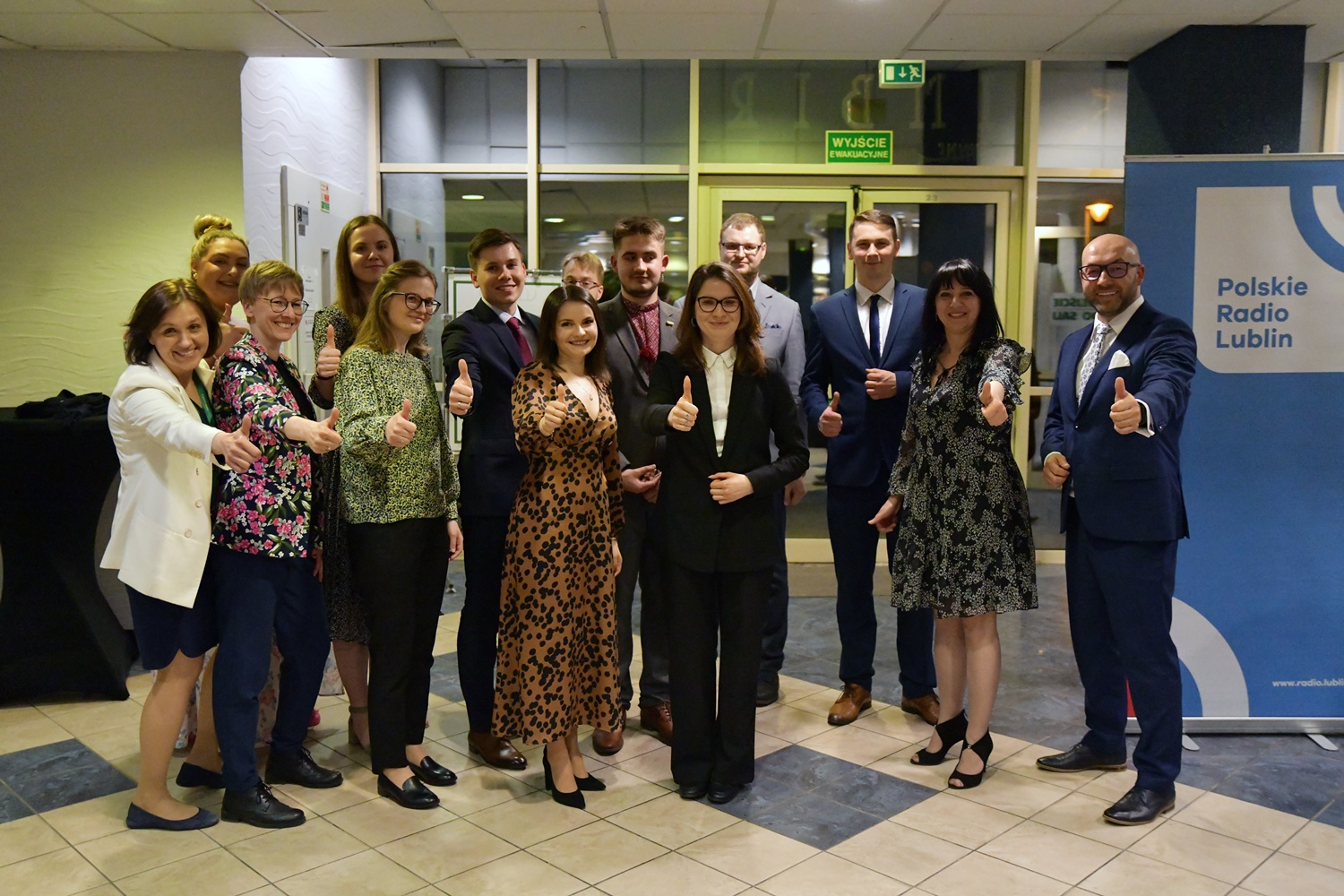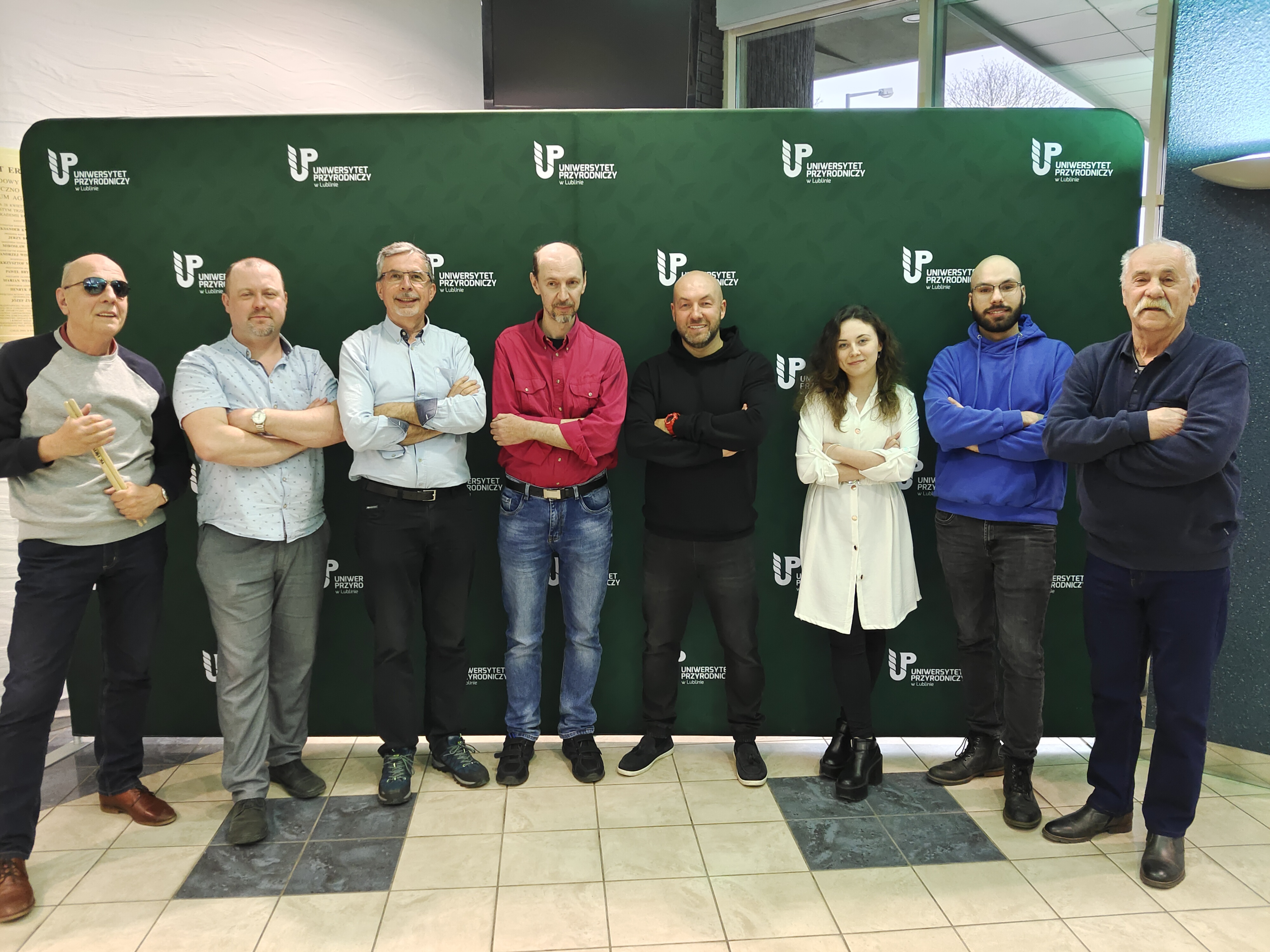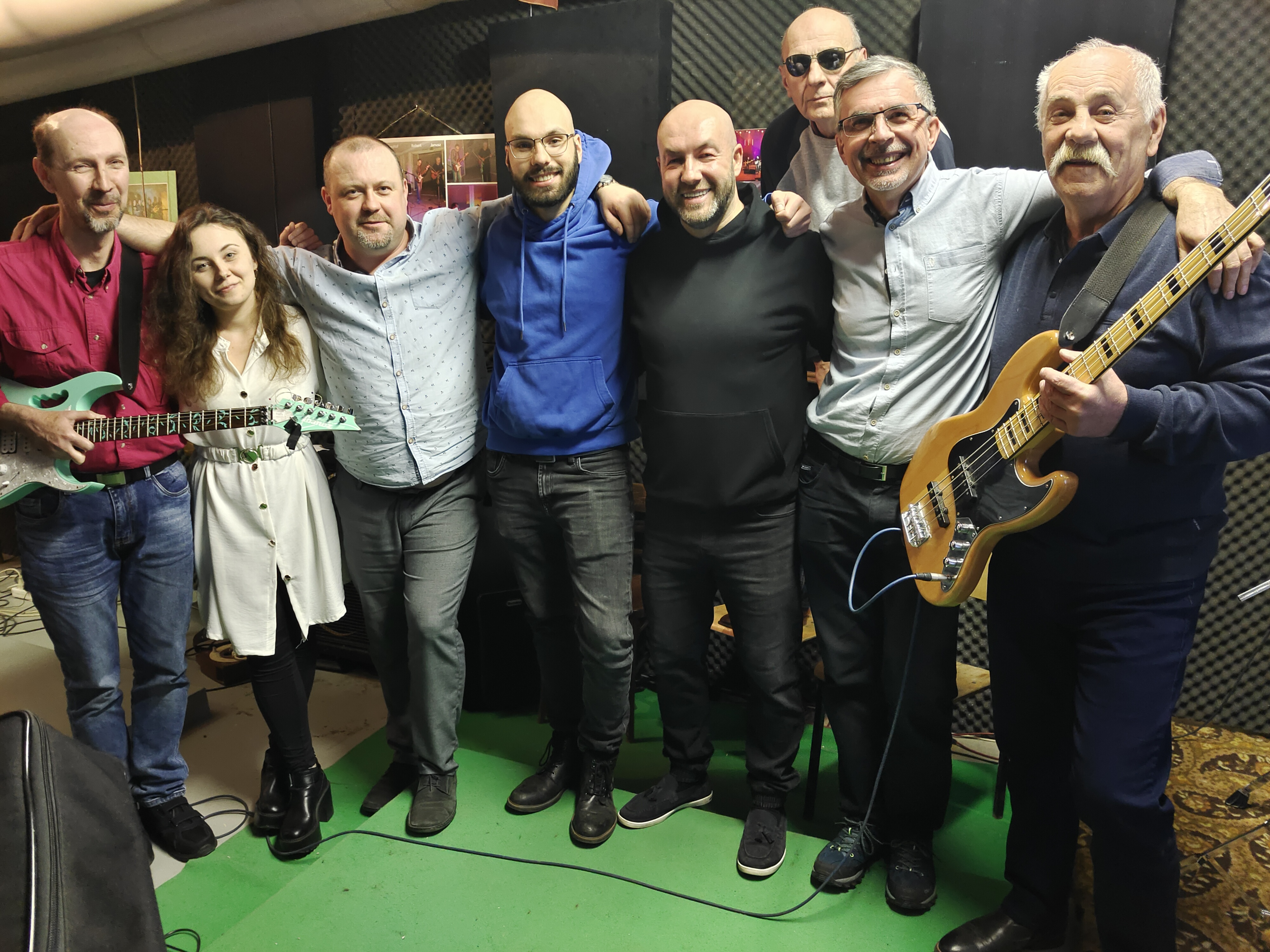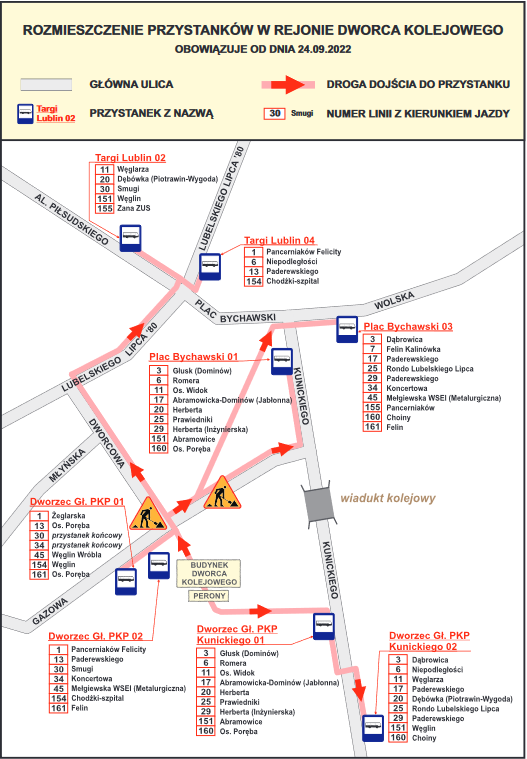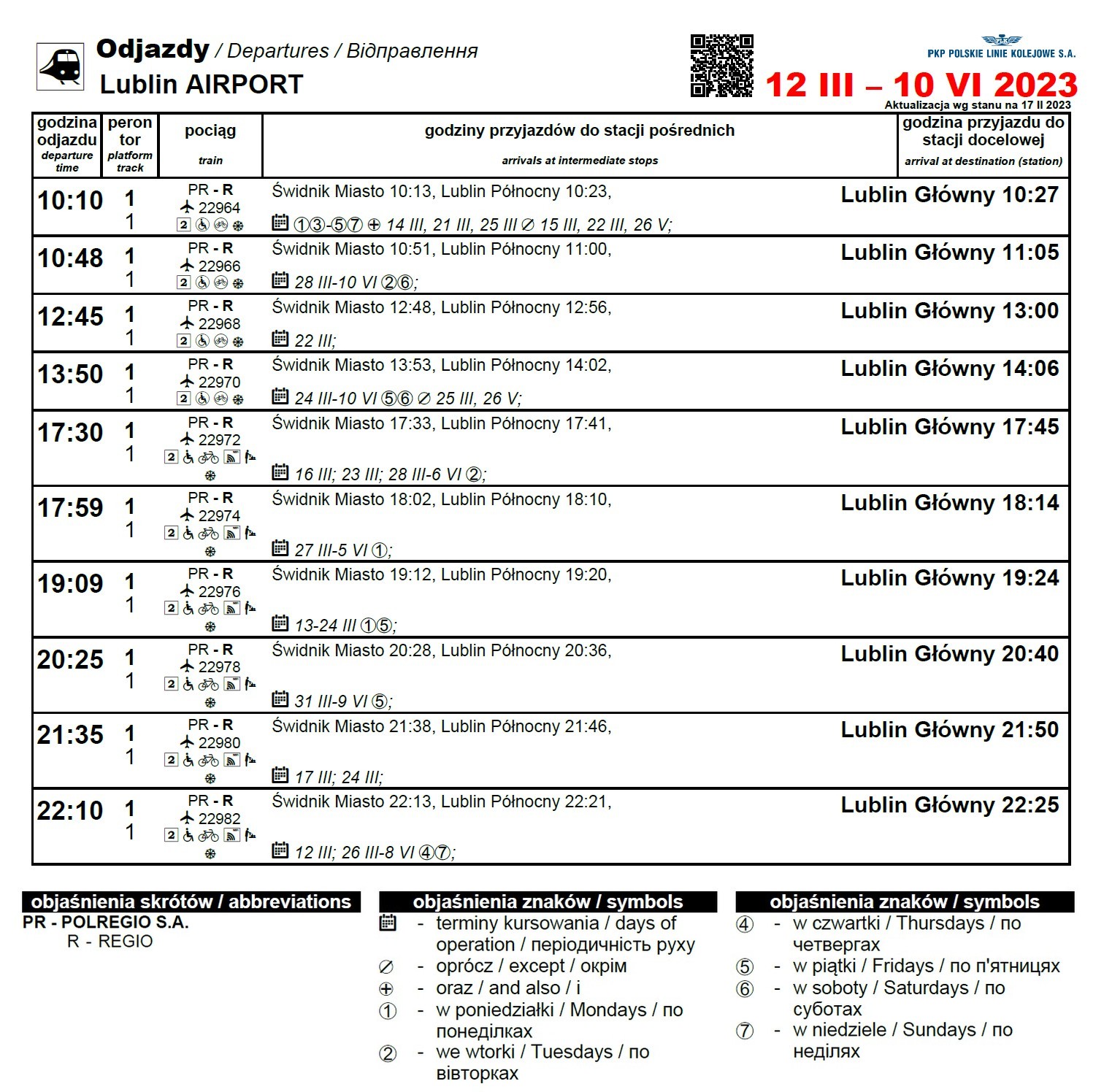

ENVIRONMENT-PLANT-ANIMAL-PRODUCT
2nd International PhD Student’s Conference
at the University of Life Sciences in Lublin, Poland: ENVIRONMENT- PLANT-ANIMAL-PRODUCT (ICDSUPL)
19-20 April 2023
hybrid format
Patronage:
Partners and donors:
- About Conference
- Announcements
- Organizers
- Scientific Committee
- Organizing committee
- Opening Lecture
- Key dates
- Posters - online gallery
- Abstract/Poster guidelines
- Payment
- Publications
- Conference programme
- Competition for the best video on the subject of Greenwashing – a threat to ecology?
- Regulations
- Directions, accommodation, dining
- Contact
Read about Conference: PL / ENG
Registration extended until
March 22nd, 2023
Any person interested in participating in the Conference is obliged to register their participation via the form available below:
Registration of participation in the Conference -> click here
***
See information about our conference at our partner’s – Center for Ukrainian and European Scientific Cooperation – website:
PROMOTIONAL VIDEO:
The University of Life Sciences in Lublin has the pleasure to invite you to the 2nd PhD Student’s Conference at the University in Lublin, Poland: „Environment-Plant-Animal-Product”, that will be held on 19-20th April 2023. The 1st day of the conference will be held at the University of Life Sciences in Lublin and it will have a hybrid format. Stationary events will be held at the Congress Hall and Conferences Hall of the University of Life Sciences in Lublin, Akademicka 15 street, Lublin. The 2nd day of the conference will be held in Janów Lubelski – interdisciplinary workshop (for stationary participants and only in Polish).
The Conference is an excellent opportunity to present result of latest research, exchange scientific ideas, share research experiences, as well as to establish interdisciplinary cooperation. We believe that the Conference will contribute to the creation of inter-university research teams, both national and international, and the integration of the doctoral students’ community. The conference program includes a plenary speech by an invited professor, oral and poster presentations of doctoral students from Poland and foreign research centers, and a competition for the best video on the subject of Greenwashing – a threat to ecology?
The interdisciplinary conference will include thematic sections in the following areas: agricultural, forestry and veterinary sciences, in the areas of biological and technical sciences as well as medical and health sciences.
Rector
of the University of Life Sciences in Lublin
prof. dr hab. Krzysztof Kowalczyk
♦
Vice-Rector
for Science and International Cooperation
of the University of Life Sciences in Lublin
dr hab. Bartosz Sołowiej, associate prof.
♦
Vice-Rector
for Student Affairs and Education
of the University of Life Sciences in Lublin
dr hab. Urszula Kosior-Korzecka, associate prof.
♦
Director of Doctoral School
of the University of Life Sciences in Lublin
prof. dr hab. Katarzyna Ognik
♦
Doctoral Students Council
of the University of Life Sciences in Lublin
We cordially invite you to participate in the Conference!
Organizing committee
Doctoral School of the University of Life Sciences in Lublin
Doctoral school of the University of Life Sciences in Lublin was established in 2019. PhD studies are conducted at the general academic, multidisciplinary Doctoral School. We offer a unique combination of interdisciplinarity and an advanced specialised curriculum. The Doctoral School of the University of Life Sciences in Lublin provides a joint course of study to all PhD students and a specialised programme for individual fields and disciplines. The uniform degree programme promotes the integration of the academic community, exchange of scientific experience and interdisciplinary perception of research problems. The added value of joint education is the open formula that allows PhD students constant scientific development and it enables the evolution of the Doctoral School according to the changing educational needs of the students of consecutive years. The path of specialised education for doctoral students is undertaken in collaboration with PhD thesis supervisors and the purpose of it is to implement individual research plans in Institutes and Departments, as well as to enable doctoral students to participate in seminars and professional traineeship. The specialised educational programme allows students to take part in various types of domestic and international courses, research internships and vocational training.
Doctoral Students Council of the University of Life Sciences in Lublin
The Doctoral Students’ Self-Government unites all PhD students of the University of Life Sciences in Lublin and is an integral part of the academic community. The bodies of the Self-Government are the Council of Doctoral Students and the Board of the Self-Government of Doctoral Students. The chairperson of the Doctoral Students’ Self-Government of the University of Life Sciences in Lublin is mgr inż. Karolina Różaniecka, Vice-Presidents are dr. vet. Artur Ciszewski and mgr inż. Wiktoria Janicka and the Secretary mgr inż. Aleksandra Garbacz. The Council consists of PhD students of all disciplines studying at the Doctoral School.
prof. dr hab. Krzysztof Kowalczyk, University of Life Sciences in Lublin, Poland
dr hab. Bartosz Sołowiej, associate prof., University of Life Sciences in Lublin, Poland
dr hab. Urszula Kosior-Korzecka, associate prof., University of Life Sciences in Lublin, Poland
prof. dr hab. Andrzej Marczuk, University of Life Sciences in Lublin, Poland
prof. dr hab. Adam Waśko, University of Life Sciences in Lublin, Poland
prof. dr hab. Katarzyna Ognik; University of Life Sciences in Lublin; Poland
prof. dr hab. Barbara Kołodziej; University of Life Sciences in Lublin; Poland
prof. dr hab. Marta Kankofer; University of Life Sciences in Lublin; Poland
prof. dr hab. Dariusz Andrejko; University of Life Sciences in Lublin; Poland
prof. dr hab. Waldemar Gustaw; University of Life Sciences in Lublin; Poland
prof. dr hab. Brygida Ślaska; University of Life Sciences in Lublin; Poland
prof. dr hab. Krzysztof Jóźwiakowski, University of Life Sciences in Lublin; Poland
prof. dr hab. Tomasz Mieczan, University of Life Sciences in Lublin; Poland
dr hab. Iwona Puzio, associate prof.; University of Life Sciences in Lublin; Poland
dr hab. Katarzyna Dzida associate prof.; University of Life Sciences in Lublin; Poland
dr hab. Arkadiusz Matwijczuk, associate prof.; University of Life Sciences in Lublin; Poland
dr hab. Barbara Sowińska-Świerkosz, associate prof.; University of Life Sciences in Lublin; Poland
dr hab. Magdalena Krauze, associate prof.; University of Life Sciences in Lublin; Poland
dr hab. eng. Tomasz N. Kołtunowicz, associate prof., Lublin University of Technology; Poland
dr n. med. Monika Cendrowska-Pinkosz, Medical University of Lublin, Poland
MD Wojciech Dworzański, Medical University of Lublin, Poland
prof. Todor Vasiljevic, College of Health and Biomedicine Victoria University, Melbourne; Australia
dr hab. Viktor Korzun, Global Lead Scientific Affairs, KWS SAAT SE & Co. KGaA; Germany
prof. Anabela Cândida Ramalho Durão, Instituto Politécnico de Beja; Portugal
prof. Paulius Matusevicius, Lithuanian University of Health Sciences; Lithuania
prof. Joan Garcia, Universitat Politècnica de Catalunya-BarcelonaTech; Spain
prof. Luis Inostroza, Ruhr-Universität Bochum, Germany
prof. Igor Tomašević, University of Belgrade; Serbia
prof. Mumtaz Kasha, University of Al-Hamdaniya; Iraq
dr Laura Wendling, VTT Technical Research Centre of Finaland LTD
Assoc. prof. dr. Živilė Tarasevičienė, Vytautas Magnus University Agriculture Academy; Lithuania
PhD Manuela Nagel, Leibniz Institute of Plant Genetics and Crop Plant Research; Germany,
PhD Ramutė Mišeikienė, Lithuanian University of Health Sciences; Lithuania
PhD Stoja Milovanovic, Senior Scientific Associat, University of Belgrade; Serbia
MSc Karolina Różaniecka, PhD student University of Life Sciences in Lublin; Poland
MSc Katarzyna Matyszczuk, PhD student University of Life Sciences in Lublin; Poland
MSc Wiktoria Janicka, PhD student University of Life Sciences in Lublin; Poland
MSc Michał Arciszewski, PhD student University of Life Sciences in Lublin; Poland
|
ORGANIZING COMMITTEE FROM THE UNIVERSITY OF LIFE SCINCES IN LUBLIN; POLAND |
prof. dr hab. Katarzyna Ognik – Head of the Committee
dr hab. Barbara Sowińska-Świerkosz, associate prof.- Vice – Head of the Committee
PhD Małgorzata Wysocka – Secretary of the Conference
prof. dr hab. Tomasz Oniszczuk
dr hab. Sławomir Ligęza, associate prof.
dr hab. Magdalena Pogorzelec, associate prof.
dr hab. Leszek Rydzak, associate prof.
PhD Edyta Kowalczuk-Vasilev
PhD Justyna Libera
PhD Maciej Combrzyński
PhD Maciej Nastaj
PhD Przemysław Sołek
PhD Ewelina Cholewińska
PhD Anna Stępniowska
PhD Beata Biernacka
PhD Agnieszka Micek
PhD Katarzyna Kwiatkowska
MSc Paulina Osowska
MSc Karolina Jóźwiakowska
MSc Karolina Kwapisz
MSc Magdalena Łukasik-Niezgoda – Plenipotentiary for people with disabilities
DVM Artur Ciszewski, PhD student
MSc Kamila Janicka, PhD student
MSc Sebastian Kuśmierz, PhD student
DVM Aleksandra Marzec, PhD student
MSc Radosław Smagieł, PhD student
MSc Szymon Milewski, PhD student
MSc Julia Fabjanowska, PhD student
MSc Aleksandra Garbacz, PhD student
MSc Maciej Bryś, PhD student
MSc Jan Sadurski, PhD student
MSc Maria Stasińska-Jakubas, PhD student
MSc Marcin Kondracki, PhD student
MSc Magdalena Cieplak, PhD student
DVM Maria Pisarek, PhD student
The opening lectures will be given by:
-
Professor Todor Vasiljevic, College of Health and Biomedicine Victoria University. Melbourne, Australia: "Structure, function and relationship of Proteins – Current Research Direction"
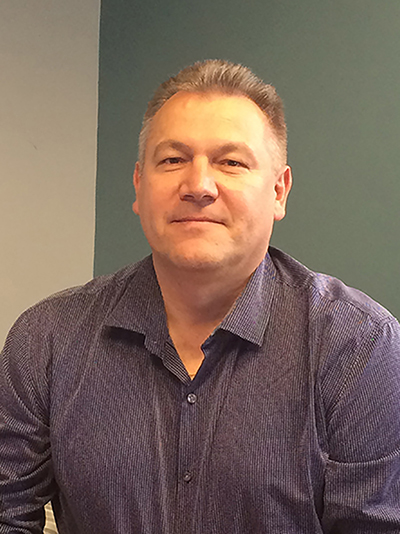
Biography
Prof. Vasiljevic has 30 years of research, consulting and teaching experience in various academic roles working closely with the food industry. After his Bachelor of Engineering with Food Technology Major, he specialized in Dairy science completing his doctorate at University of Alberta, Canada. For the past 16 years he has been leading the research and teaching entities in the food science programs at Victoria University. Under his leadership, Advanced Food Systems Research Unit has become a benchmark for fundamental and commercial research for the food clusters in rural Australia. The main focus of Prof. Vasiljevic’s has been on providing integrated solutions to contemporary issues of mainly dairy industry, ensuring innovative processing and contributing to safe and sustainable food supply.
Number of publications according Scopus=189,
Number of citations =6924,
Index H=47
Victoria University, Australia
-
dr hab. Viktor Korzun, Global Lead Scientific Affairs, KWS SAAT SE & Co. KGaA, Germany: "Public-Private-Partnership in plant research and plant breeding"
 Dr. Viktor Korzun
Dr. Viktor KorzunKWS SAAT SE & Co. KGaA Einbeck, Germany
Dr. Viktor Korzun will present a short opening lecture with the title “Public-Private-Partnership in plant research and plant breeding”.
Biography: Viktor Korzun has his BS in Agronomy & Breeding from the Belarussian Agricultural Academy and a PhD in Plant Genetics from the Institute of Genetics and Cytology, Academy of Sciences of Belarus.- He was visiting scientist at Cambridge Laboratory, John Innes Centre for Plant Science Research, Norwich, UK and postdoctoral researcher at the Institute of Plant Genetics and Crop Plant Research, Gatersleben, Germany before he moved in 1999 to KWS as Head of Cereals Breeding Technologies.
- From 2018 he has his current role as Global Lead Scientific Affairs with focus on national and international collaboration, relationships with worldwide leading universities and institutions and support of young talented scientists in plant breeding related research.
- Viktor Korzun has more than 30 years’ experience in development and application of molecular markers and novel breeding technologies in cereal crops. He has authored 172 full publications in high-ranking scientific journals and books, including abstract and short communications > 600 publications (h-index is 70, https://scholar.google.com/citations?user=RxTM094AAAAJ&hl=de&oi=ao on 07.12.2022) and is an Associate Editor of the Journal Molecular Breeding, Frontiers in Plant Science and a Section Board Member of the Plants (MDPI), Plant Genetics, Genomics and Biotechnology.
- Viktor Korzun is a Member of Scientific Innovation Advisory Board at John Innes Centre (JIC) https://www.jic.ac.uk/ , Norwich, UK and a Members of the Scientific Advisory Board of the State Seed Breeding Institute of the University of Hohenheim, https://lsa.uni-hohenheim.de/ Stuttgart, Germany.
KWS SAAT SE & Co. KGaA: KWS is one of the world’s leading plant breeding companies. Over 5,000 employees in more than 70 countries generated net sales of around €1.5 billion in the fiscal year 2021/2022. A company with a tradition of family ownership, KWS has operated independently for 165 years. It focuses on plant breeding and the production and sale of seed for corn, sugarbeet, cereals, vegetables, oilseed rape and sunflower. KWS uses leading-edge plant breeding methods to continuously improve yield for farmers and plants’ resistance to diseases, pests and abiotic stress. To that end, the company invested more than €285 million last fiscal year in research and development.
More information: www.kws.com . Follow us on Twitter® at https://twitter.com/KWS_Group .
13 Main Publications:
- Korzun V., G. Melz and A. Börner / RFLP mapping of the dwarfing (Ddw1) and hairy peduncle (Hp) genes on chromosome 5 of rye (Secale cereale) // Theor. Appl. Genet., 1996. – 92. – P. 1073-1077.
- Röder, M. S., Korzun, K. Wendehake, J. Plaschke, M.-H. Tixier, P. Leroy and M. W. Ganal / A microsatellite map of the wheat genome // Genetics, 1998. – 149. – P. 2007-2023.
- Korzun, V., S. Malyshev, A.V. Voylokov and A. Börner / A genetic map of rye (Secale cereale) combining RFLP, isozyme, microsatellite and gene loci // Theor. Appl. Genet., 2001. – 102. – P. 709-717.
- Börner, A., Korzun and R.K. Varshney / Molecular maps in cereals: methodology and progress // In Cereals Genomics // Gurta P.K., R.K. Varshney (Eds) // Kluwer Academic Publisher, 2004. – P. 35-82.
- Bauer E., T. Schmutzer, I. Barilar, M. Mascher, H. Gundlach, M. M. Martis, S. O. Twardziok, B. Hackauf, A. Gordillo, P. Wilde, M. Schmidt, Korzun, K.F.X. Mayer, K. Schmid, C.-C. Schön, U. Scholz / Towards a whole-genome sequence for rye (Secale cereale L.) // Plant. J., 2017. – 89. – P. 853-869.
- Miedaner T., Korzun, E. Bauer / Genomics-based hybrid rye breeding // In Applications of Genetics and Genomics Research in Cereals // Genomics Miedaner T., V. Korzun (Eds.) // Woodhead Publishing Series in Food Science, Technology and Nutrition // Elsevier – 2018.- P.329-344.
- Rabanus-Wallace T. M., B. Hackauf, M. Mascher, T. Lux, T. Wicker, H. Gundlach, M. Báez, A. Houben, K. F.X. Mayer, L. Guo, J. Poland, C. J. Pozniak, S. Walkowiak, J. Melonek, C. Praz, M. Schreiber, H. Budak, M. Heuberger, B. Steuernagel, B. Wulff, A. Börner, B. Byrns, J. Čížková, D. B. Fowler, A. Fritz, A. Himmelbach, G. Kaithakottil, J. Keilwagen, B. Keller, D. Konkin, J. Larsen, Q. Li, B. Myśków, S. Padmarasu, N. Rawat, U. Sesiz, B. Sezgi, A. Sharpe, H. Šimková, I. Small, D. Swarbreck, H. Toegelová, N. Tsvetkova, A. V. Voylokov, J. Vrána, E. Bauer, H. Bolibok-Bragoszewska, J. Doležel, A.Hall, J. Jia, Korzun, A. Laroche, X.-F. Ma, F. Ordon, H. Özkan, M. Rakoczy-Trojanowska, U. Scholz, A. H. Schulman, D. Siekmann, S. Stojałowski, V. Tiwari, M. Spannagl, N. Stein / Chromosome-scale genome assembly provides insights into rye biology, evolution, and agronomic potential // Nature Genetics, 2021. – 53.– P. 564–573.
- Reynolds M., O. K. Atkin, M. Bennett, M. Cooper, I. C. Dodd, M. J. Foulkes, C. Frohberg, G. Hammer, I. R. Henderson, B. Huang, Korzun, S. R. McCouch, C. D. Messina, B. J. Pogson, G. Slafer, N. L. Taylor, P. E. Wittich / Addressing Research Bottlenecks to Crop Productivity // Trends in Plant Science, 2021. – 26.– P. 607-630.
- Zhao Y., P. Thorwarth, Y. Jiang, N. Philipp, A.W. Schulthess, P.H. G. Boeven, C. F. H. Longin, M. Gils, R. Schachschneider, J. Schacht, E. Ebmeyer, Korzun, E. Kazman, Vilson Mirdita, Jost Dörnte, Stefan Kontowski, Ralf Horbach, Hilmar Cöster, J. Holzapfel, A. Jacobi, L. Ramgraber, C. Reinbrecht, N. Starck, P. Varenne, A. Starke, F. Schürmann, M. Ganal, A. Polley, S. Beier, U. Scholz, T. Würschum, R. Schmidt, J. C. Reif / Big data strategies for predicting grain yield of hybrids in wheat // Science Advances, 24 September 2021
- Hackauf B., T. Rabanus-Wallace, Korzun / Mapping of genes and QTL rye // The Rye Genome // Rabanus-Wallace T., N. Stein (Eds.) // Compendium of Plant Genomes // Springer Nature Switzerland AG – 2021.- P.135-180. https://doi.org/10.1007/978-3-030-83383-1.
- Joanna Melonek J., Korzun, B. Hackauf / Genomics of self-incompatibility and male-fertility restoration in rye // The Rye Genome // Rabanus-Wallace T., N. Stein (Eds.) // Compendium of Plant Genomes // Springer Nature Switzerland AG – 2021. – P.181-212. https://doi.org/10.1007/978-3-030-83383-1.
- Korzun V., M. L. Ponomareva, M. E. Sorrells / Economic and academic importance of rye // The Rye Genome // Rabanus-Wallace T., N. Stein (Eds.) // Compendium of Plant Genomes // Springer Nature Switzerland AG – 2021.- P.1-12. https://doi.org/10.1007/978-3-030-83383-1.
- Albert W. Schulthess, Sandip M. Kale, Fang Liu, Yusheng Zhao, Norman Philipp, Max Rembe, Yong Jiang, Ulrike Beukert, Albrecht Serfling, Axel Himmelbach, Jens Keilwagen, Jörg Fuchs, Markus Oppermann, Stephan Weise, Philipp H. G. Boeven, C. Friedrich H. Longin, Sonja Kollers, Nina Pfeiffer, Viktor Korzun, Nils Stein, Martin Mascher, Jochen C. Reif: GiPS: Genomics-informed parent selection uncovers the breeding value of wheat genetic resources. Genet. 54 (2022) 1544-1552. https://dx.doi.org/10.1038/s41588-022-01189-7
-
dr Laura Wendling, VTT Technical Research Centre of Finaland LTD: „The role of nature-based solutions within Europe’s green transition”

Links:
LinkedIn Profile https://www.linkedin.com/in/laura-wendling-086a2414/
ORCID https://orcid.org/0000-0002-5728-3684
Google Scholar https://scholar.google.com.au/citations?user=8yAb3XoAAAAJ&hl=en
Dr Laura Wendling is a Senior Scientist and leader of the Nature-Based Solutions team at VTT Technical Research Centre of Finland, and a docent in soil and water management at Aalto University. She defended her doctoral dissertation in 2004 at Washington State University (USA) on the topic of geochemical interactions affecting caesium mobility and phytoavailability in soils. Dr Wendling started her professional career as a soil scientist for the United States Department of Agriculture-Agricultural Research Service (USDA-ARS). Between 2005 and 2013, she continued to build knowledge and expertise in soil and water science as a researcher at Australia’s Commonwealth Scientific and Industrial Research Organisation (CSIRO). Dr Wendling taught several different courses in soil and environmental sciences as a Senior Lecturer at The University of Queensland from 2013-2016.
Dr Wendling carries out interdisciplinary studies in soil and water science, broadly focused on conserving, protecting and restoring ecological integrity. She has experience in numerous national and international research and innovation projects in environmental soil and water science and nature-based innovation, sustainable and smart cities, risk evaluation and mitigation, and natural resource management. Between 2017 and 2022, Dr Wendling led a European task force on NBS impact evaluation comprised of experts from more than 20 European Horizon 2020 projects focused on NBS, and from related European programmes. She has particular expertise in the definition and application of performance and impact monitoring programmes, including the development of novel key indicators.
Dr Wendling’s core interest is in interdisciplinary, cross-sectoral research targeting increased resilience to the impacts to climate change through innovative adaptation and mitigation activities. Dr Wendling coordinated the European Horizon 2020 project Urban Nature Labs (UNaLab) and is currently the coordinator of Horizon Europe project Regions4Cimate, collaborating with a wide range of stakeholders to create, implement, evaluate and document the impacts of nature-based solutions to enhance resilience to climate change. Dr Wendling is also currently Co- Editor-in-Chief of the Elsevier Open Access journal Nature-Based Solutions.
|
1st ANNOUNCEMENT |
January 18, 2023 |
|
2nd ANNOUNCEMENT |
February 28, 2023 |
|
REGISTRATION DEADLINE |
March 22, 2023 |
|
ABSTRACT SUBMISSION |
March 22, 2023 |
|
DEADLINE FOR PAYMENT |
March 22, 2023 |
|
3rd ANNOUNCEMENT AND CONFERENCE PROGRAMME |
April 12, 2023 |

Animal sciences

Basic sciences

Environmental sciences

Plant Sciences

Technology Sciences
Rules for the preparation and presentation of the poster:
The poster should contain: name and surname of the author/authors, title, name of the university, aim of the study, material and methods, results, conclusions. For on-line participants, the poster in pdf format should be sent by April 10, 2023 to conference.doctoral@up.lublin.pl. The presentation of the poster will take place only in the multimedia form. For stationary participants the poster should be printed vertically in A0 (841 x 1189 mm) The organizer has the right to refuse to accept an abstract or poster unprepared in accordance with the editorial requirements.
Rules for the preparation of the conference abstract:
a) title: no more than 10 words.
b) affiliation: authors’ names and surnames, department / institute, university, street, zip code, city, country, e-mail address
c) the content of the abstract: 1500-2500 characters with spaces (the characters do not include the title, authors and affiliation). The content of the abstract should include: introduction, hypothesis and aim of the study, material and methods, results, conclusions.
The costs of participation in the conference (19th – 20th April 2023) for PhD students of the Doctoral School of University of Life Sciences in Lublin is covered by the Doctoral School Office.
19th April 2023
The basic fee for active participation in the conference for both stationary and on-line participation is:
25 Euro (or 120 PLN) and includes the publication of an abstract with DOI, a certificate for people giving presentation or presenting a poster, coffee break and lunch.
20th April 2023
The fee of trip to interdisciplinary workshops in Janów Lubelski (optionally)*:
double room – 128 Euro (600 PLN)
single room – 150 Euro (700PLN)
The fee includes: gala dinner, accommodation, breakfast, participation in workshop, dinner, field trip
Additional fee for transport Lublin-Janów Lubelski-Lublin is 12 Euro (60PLN) (optionally)*.
*The number of places is limited, the order of applications counts
The payment for the conference should be made by bank transfer by March 22nd, 2023 to the account:
University of Life Sciences in Lublin
55 1240 5497 1111 0000 5011 6807
Bank Pekao S.A. o/ Lublin
Krakowskie Przedmieście 72
20-076 Lublin
SWIFT PKOP PL PW
IBAN: PL + NRB
Transfer title: ICDSUPL / name and surname of the participant
A scan of the proof of payment should be sent by e-mail to: conference.doctoral@up.lublin.pl by March 22nd, 2023
Failure to make the payment within the indicated period means resignation from publication
Invoices for abstract publication will be issued at the participant’s request and sent to the e-mail address provided by the participant
The fee is non-refundable
It is possible to issue a proforma invoice.
All abstracts will be published on-line on
conference-doctoral.up.lublin.pl
and all abstract will have DOI.
Additionally, we encourage you to publish the results of the studies presented in abstracts as a full article in one of the following scientific journals:
|
Agronomy Science |
|
Journal of Animal Science, Biology and Bioeconomy |
|
Veterinary Medicine-Science and Practice |
|
Acta Scientiarum Polonorum-Hortorum Cultus |
Publication of full article is not mandatory.
The conference fee does not cover the cost of publishing a full article.
For publications costs see the website of the journal.
Conference Programme

DETAILED PROGRAMME
Surprise concert
Concert report
The band Klasyczni w Rocku:
Wojtek Sekuła – guitar
Alek Wilkos – guitar
Janusz Karaś – bass guitar
Ireneusz Balicki – piano
Andrzej Ciepliński – drums
Bartosz Sołowiej – vocal
Radek Jamróz – vocal
Greenwashing – a threat to ecology?
organized as a part of the
2nd International PhD Student’s Conference at the University of Life Sciences in Lublin, Poland:
ENVIRONMENT- PLANT-ANIMAL-PRODUCT (ICDSUPL)
The aim of the contest is to show the threads of greenwashing to the ecology and science.
The subject of the contest is to prepare a video on issues related to the threads of greenwashing to ecology.
Jury members of the video contest: Greenwashing – a threat to ecology?
1. dr hab. Barbara Sowińska-Świerkosz, assosiate professor; University of Life Science in Lublin – Head of the jury
2. dr Tomasz Olechwir; Institute of Marine and Environmental Sciences, University of Szczecin, Ecoskills Tomasz Olechwir
3. dr inż. Emil Smyk; Bydgoszcz University of Science and Technology, Science Watch Polska Fundation
4. Canaletto Art; Mateusz Wójcicki i Aleyna lşık
Prizes in the video contest:
- Two-days excursion on Poleski National Park (accommodation, guide and entrance tickets); funded by Poleski National Park
- Gift voucher for one-day excursion on western Pomerania; funded by Ecoskills Tomasz Olechwir
- On-line lectures on film editing and animation: Adobe Premiere Pro and Adobe After Effects programs (English or Polish); funded by Canaletto Art
- Ecological package for painting (producer Tikkurila); funded by Centrofarb Sp. z o.o.
Technical specifications
- The necessary condition to take part in the contest is to register for the conference. The registration form is available on the conference’ website: https://up.lublin.pl/szkola-doktorska/konferencja
- The video must be authored by one person
- The video should be prepared in English.
- Preferably the video is in landscape mode, saved as .mov or .mp4 file.
- The length of the videos should be minimum 90 seconds and maximum 3 minutes.
- All types of videos are allowed, including smartphone. Videos must not be professional.
- All information presented in the video must be properly cited, giving credit to the original source. No copyrighted materials (music, images, etc.) may be used for this contest unless you own the copyright or have a license to use the material.
- It is not allowed to submit videos that are a sort of advertisement for a product or company.
- Videos of inappropriate quality and length will be not accepted.
- The participant is obliged to send files containing the video until April 10th, 2023 to the e-mail address: conference.doctoral@up.lublin.pl . Video sent after the deadline will not be admitted to the competition.
- Winners of the 1st, 2nd and 3rd degree prizes will receive diplomas and prizes funded by Conference sponsors.
- The awards ceremony and presentation of the winning videos will take place on April 19 2023 during the closer ceremony.
Read about Sebastian Kuśmierz, MSc, the winner of last year’s competition, who participated in “Active methods in adult learning” training as a part of the competition’s prize:

Training "Active methods in adult learning" (in Polish)

Regulations: 2nd International PhD Student’s Conference at the University of Life Sciences in Lublin (.pdf)

Regulation of the video contest "Greenwashing – a threat to ecology?" (.pdf)
In English:
-
Directions to the conference for those arriving at the Lublin Główny Railway Station
Directions from the Lublin Główny Railway Station (Plac Dworcowy 1, 20-408 Lublin) – University of Life Sciences in Lublin (15 Akademicka Street, 20-950 Lublin)
By car:
We recommend:
- UBER (application) – https://www.uber.com/global/pl/cities/lublin/
- BOLT (application) https://m.bolt.eu/
- ALE TAXI tel. 81 511-11-11 mobile: 791-511-111, http://www.aletaxi.pl/kontakt
- ETAXI tel. 81 740 40 40, http://www.etaxi.lublin.pl/,
Public transport:
We suggest planning the route using the application or website: https://jakdojade.pl
Due to the construction of the Metropolitan Railway Station in Lublin, the distribution of stops in the area of the Railway Station is presented on the attached map.
Suggested MPK Lublin travel options:
- Line 154: From the railway station, walk about 3 minutes, 180 m to the Dworzec Gł. PKP 01 stop at ul. Plac Dworcowy by bus no. 154 (Direction: Węglin), get off at the Wiercieńskiego 01 stop (4th stop) at ul. Głęboka. From the stop to the conference venue, is about a 6 minute walk, 450 m. Buses run about every 12 minutes.
- Line 155: From the railway station, walk about 3 minutes, 180 m to the Targi Lublin 02 stop at ul. Piłsudskiego by bus No. 155 (Direction: Zana ZUS), get off at the KUL 03 stop (4th stop) at Al. Racławicki. It takes about 10 minutes, 770 m, from the bus stop to the conference venue. Buses run about every 14 minutes.
Link to the timetable of the Lublin MPK: https://www.mpk.lublin.pl/
-
Access to the conference for those arriving at the PKS Lublin Główny bus station
Access from the Main Bus Station (Aleja Tysiąclecia 6, 20-121 Lublin) – University of Life Sciences in Lublin (ul. Akademicka 15, 20-950 Lublin)
By car:
we recommend:
- UBER (application) – https://www.uber.com/global/pl/cities/lublin/
- BOLT (app) https://m.bolt.eu/
- ALE TAXI phone: 81 511-11-11, mobile phone: 791-511-111, http://www.aletaxi.pl/kontakt
- ETAXI tel. 81 740 40 40, http://www.etaxi.lublin.pl/,
Public transport:
We suggest planning the route using the application or the website: https://jakdojade.pl
Suggested MPK Lublin travel options:
- Line 31; 150: From the railway station, walk about 1 minute, 70 m to the Dworzec Gł. PKS 02 stop at ul. Tysiąclecia by bus 150 or 31 (Direction: Os. Poręba), get off at the UMCS 01 stop (4th stop). It takes about 6 minutes, 490 m, to walk from the bus stop to the conference venue. Buses run every 13-15 minutes.
- Line 18; 57: From the railway station, walk about 1 minute, 70 m to the Dworzec Gł. PKS 02 stop at ul. Tysiąclecia by bus 18 (Direction: Sławinkowska) or 57 (Direction: Os. Poręba), get off at the KUL 03 stop (4th stop) at ul. Al. Racławickie. It takes about 10 minutes to walk from the bus stop to the conference venue, 770 m. Buses run every 7-10 minutes.
Link to the timetable from the Lublin bus station: http://www.lubelskiedworce.pl/
-
Access to the conference for those arriving at the Lublin Airport
Access from Lublin SA Airport (ul. Króla Jana III Sobieskiego 1, 21-040 Świdnik) – University of Life Sciences in Lublin (ul. Akademicka 15, 20-950 Lublin)
By Car:
we recommend:
- UBER (application) – https://www.uber.com/global/pl/cities/lublin/
- BOLT (application) https://m.bolt.eu/
- ALE TAXI tel. 81 511-11-11 mobile: 791-511-111, http://www.aletaxi.pl/kontakt
- ETAXI tel. 81 740 40 40, http://www.etaxi.lublin.pl/,
PKP:
From the Lublin Airport you can get to the Conference venue by train, the train stop is located at the airport terminal
Tickets available at https://bilety.polregio.pl/
Poster timetable available at https://portalpasazera.pl/Plakaty after entering Lublin Airport in the search engine.
Public transport:
We suggest planning the route using the application or the website: https://jakdojade.pl
Suggested options for traveling by MPK Lublin:
- Line 05 with a change in 31; 57; 150: From the stop Port Lotniczy Lublin – arrivals 02 by bus no. 05 (Direction: Brama Krakowska), get off at the stop Dworzec Gł. PKS 02 at ul. Tysiąclecia (stop 21) and change to line 31; 57; 150 (Direction: Os. Poręba), get off at the UMCS 01 stop (4th stop). It takes about 6 minutes, 490 m, to walk from the bus stop to the conference venue. Buses 05 run every 60-180 minutes. Buses 31, 57, 150 run every 13-15 minutes.
-
Accommodation
In the vicinity of the Conference venue, there is a possibility of accommodation in a dormitory of the University of Life Sciences (the number of places is limited), hotels, hostels or apartments.
We suggest you book your accommodation using the app or website:
- https://www.booking.com
- https://noclegi.pl/lublin?search=Lublin()
- https://www.nocowanie.pl/noclegi/lublin/
- https://www.airbnb.pl/lublin-poland/stays
Listed below are the proposed facilities with contact details
1. Hotel Victoria Lublin
ul. Narutowicza 58/60 20-016 Lublin
phone no. +48 81 532 70 11
e-mail: info@victorialublin.pl2. MERCURE LUBLIN CENTRUM
Aleje Racławickie 12, 20-037 Lublin
phone no. 81 533 20 61
website: https://mercure-lublin-centrum-hotel.at-hotels.com/pl/#main
https://www.booking.com/3. Hotel „LOGOS” Lublin
Akademicka 4, 20-033 Lublin
phone no. +48 81 533 82 85, +48 81 533 82 86
e-mail: recepcja@hotellogos.lublin.pl
https://hotellogos.lublin.pl/cennik-uslug-hotelowych/4. HOSTEL SKŁODOWSKA
ul. Marii Skłodowskiej-Curie 9, 20-020 Lublin
phone no. 667 188 667
e-mail:info@hostelsklodowska.pl5. Rodmos Hostel
3-go Maja 8/4 Lublin
phone no.: (+81) 532 03 51 tel. kom.: 0 693 040 001
e-mail: biuro@rodmos.pl
http://rodmos.pl/hostel/6. Host Lublin Wyszyńskiego
ul. Wyszyńskiego 3, 20-102 Lublin
phone no. 519 682 943
e-mail: hostlublin@gmail.com
www.booking.com/hotel/pl/hostlublin-wyszynskiego7. Apartamenty Wieniawa
Bartosza Głowackiego 20, 20-060 Lublin
phone no.: +48 508 56 26 26
e-mail:info@apartamentywieniawa.pl
http://www.apartamentywieniawa.pl/8. Akademiki UP Lublin
Student Dormitories Office
ul. Langiewicza 12, 20-035 Lublin (DS Eskulap)
phone no. 81 441 14 80
-
Dining
- Restaurant Bazylia UMCS
ul. Plac Marii Curie-Skłodowskiej 4A, 20-031 Lublin, Polska - „Trójka” – Stołówka Akademicka (Academic Canteen) UMCS
ul. Langiewicza 16, 20-032 Lublin - „IMBIR” Bistro & Cafe
Centrum Kongresowe UP
ul. Akademicka 15, 20-950 Lublin - Stołówka Studencka KUL (Student Canteen)
The canteen is located in the building called Konwiktu Księży Studentów, opposite the academic church “Kościoła Akademickiego”.
ul. Księdza, Idziego Radziszewskiego 7, 20-039 Lublin
- Restaurant Bazylia UMCS
In Polish:
-
Dojazd na konferencję dla przyjeżdzających na Dworzec PKP Lublin Główny
Dojazd z Dworca Lublin Główny (Plac Dworcowy 1, 20-408 Lublin) – Uniwersytet Przyrodniczy w Lublinie (ul. Akademicka 15, 20-950 Lublin)
Samochodem:
Polecamy:
- UBER (aplikacja) – https://www.uber.com/global/pl/cities/lublin/
- BOLT (aplikacja) https://m.bolt.eu/
- ALE TAXI tel. 81 511-11-11 tel. komórkowy: 791-511-111, http://www.aletaxi.pl/kontakt
- ETAXI tel. 81 740 40 40, http://www.etaxi.lublin.pl/,
Komunikacją miejską:
Sugerujemy zaplanować trasę przejazdu korzystając z aplikacji lub strony: https://jakdojade.pl
Z racji na budowę Dworca Metropolitalnego w Lublinie rozmieszczenie przystanków w rejonie Dworca Kolejowego prezentuje załączona mapa sytuacyjna.
Sugerowane opcje przejazdu MPK Lublin:
- Linia 154: Z dworca PKP przejść pieszo około 3 min,180 m na przystanek Dworzec Gł. PKP 01 przy ul. Plac Dworcowy autobusem nr 154 (Kierunek: Węglin), wysiąść na przystanku Wiercieńskiego 01 (4 przystanek) przy ul. Głęboka. Z przystanku na miejsce konferencji jest do przejścia ok. 6 min, 450 m. Autobusy jeżdżą co ok. 12 min.
- Linia 155: Z dworca PKP przejść pieszo około 3 min,180 m na przystanek Targi Lublin 02 przy ul. Piłsudskiego autobusem nr 155 (Kierunek: Zana ZUS), wysiąść na przystanku KUL 03 (4 przystanek) przy Al. Racławickich. Z przystanku na miejsce konferencji jest do przejścia ok. 10 min, 770 m. Autobusy jeżdżą co ok. 14 min. Autobusy jeżdżą co ok. 14 min.
Link do rozkładu jazdy lubelskiego MPK: https://www.mpk.lublin.pl/
-
Dojazd na konferencję dla przyjeżdzających na Dworzec PKS Lublin Główny
Dojazd z Dworca Głównego PKS (Aleja Tysiąclecia 6, 20-121 Lublin) – Uniwersytet Przyrodniczy w Lublinie (ul. Akademicka 15, 20-950 Lublin)
Samochodem:
Polecamy:
- UBER (aplikacja) – https://www.uber.com/global/pl/cities/lublin/
- BOLT (aplikacja) https://m.bolt.eu/
- ALE TAXI tel. 81 511-11-11, tel. komórkowy: 791-511-111, http://www.aletaxi.pl/kontakt
- ETAXI tel. 81 740 40 40, http://www.etaxi.lublin.pl/,
Komunikacją miejską:
Sugerujemy zaplanować trasę przejazdu, korzystając z aplikacji lub strony: https://jakdojade.pl
Sugerowane opcje przejazdu MPK Lublin:
- Linia 31; 150: Z dworca PKP przejść pieszo około 1 min, 70 m na przystanek Dworzec Gł. PKS 02 przy ul. Tysiąclecia autobusem nr 150 lub 31 (Kierunek: Os. Poręba), wysiąść na przystanku UMCS 01 (4 przystanek). Z przystanku na miejsce konferencji jest do przejścia ok. 6 min, 490 m. Autobusy jeżdżą co ok. 13-15 min.
- Linia 18; 57: Z dworca PKP przejść pieszo około 1 min, 70 m na przystanek Dworzec Gł. PKS 02 przy ul. Tysiąclecia autobusem nr 18 (Kierunek: Sławinkowska) lub 57 (Kierunek: Os. Poręba), wysiąść na przystanku KUL 03 (4 przystanek) przy ul. Al. Racławickie. Z przystanku na miejsce konferencji jest do przejścia ok. 10 min, 770 m. Autobusy jeżdżą co ok. 7-10 min.
Link do rozkładu jazdy z lubelskiego dworca PKS: http://www.lubelskiedworce.pl/
-
Dojazd na konferencję dla przylatujących na port Lotniczy Lublin
Dojazd z Portu Lotniczego Lublin SA (ul. Króla Jana III Sobieskiego 1, 21-040 Świdnik) – Uniwersytet Przyrodniczy w Lublinie (ul. Akademicka 15, 20-950 Lublin)
Samochodem:
Polecamy:
- UBER (aplikacja) – https://www.uber.com/global/pl/cities/lublin/
- BOLT (aplikacja) https://m.bolt.eu/
- ALE TAXI tel. 81 511-11-11 tel. komórkowy: 791-511-111, http://www.aletaxi.pl/kontakt
- ETAXI tel. 81 740 40 40, http://www.etaxi.lublin.pl/,
PKP:
Z Portu Lotniczego Lublin mogą Państwo dojechać na miejsce Konferencji pociągiem, przystanek kolejowy zlokalizowany jest przy terminalu lotniska
Bilety do nabycia na https://bilety.polregio.pl/
Plakatowy rozkład jazdy dostępny na stronie https://portalpasazera.pl/Plakaty po wpisaniu Lublin Airport w wyszukiwarkę.
po wpisaniu Lublin Airport w wyszukiwarkę.
Komunikacją miejską:
Sugerujemy zaplanować trasę przejazdu, korzystając z aplikacji lub strony: https://jakdojade.pl
Sugerowane opcje przejazdu MPK Lublin:
- Linia 05 z przesiadką w 31; 57; 150: Z przystanku Port Lotniczy Lublin – przyloty 02 autobusem nr 05 (Kierunek: Brama Krakowska), wysiąść na przystanku Dworzec Gł. PKS 02 przy ul. Tysiąclecia (21 przystanek) i przesiąść siew linię 31; 57; 150 (Kierunek: Os. Poręba), wysiąść na przystanku UMCS 01 (4 przystanek). Z przystanku na miejsce konferencji jest do przejścia ok. 6 min, 490 m. Autobusy 05 jeżdżą co ok. 60-180 min. Autobusy 31, 57, 150 jeżdżą co ok. 13-15 min.
-
Zakwaterowanie
W pobliżu miejsca Konferencji istnieje możliwość zakwaterowania w akademiku Uniwersytetu Przyrodniczego (ilość miejsc ograniczona), hotelach, hostelach lub apartamentach.
Sugerujemy dokonać rezerwacji noclegu, korzystając z aplikacji lub strony:
- https://www.booking.com
- https://noclegi.pl/lublin?search=Lublin()
- https://www.nocowanie.pl/noclegi/lublin/
- https://www.airbnb.pl/lublin-poland/stays
Poniżej proponowane obiekty wraz z danymi teleadresowymi
1. Hotel Victoria Lublin
ul. Narutowicza 58/60 20-016 Lublin
tel. +48 81 532 70 11
e-mail: info@victorialublin.pl2. MERCURE LUBLIN CENTRUM
Aleje Racławickie 12, 20-037 Lublin
tel. 81 533 20 61
website: https://mercure-lublin-centrum-hotel.at-hotels.com/pl/#main
https://www.booking.com/3. Hotel „LOGOS” Lublin
ul. Akademicka 4, 20-033 Lublin
tel. +48 81 533 82 85, +48 81 533 82 86
e-mail:recepcja@hotellogos.lublin.pl
https://hotellogos.lublin.pl/cennik-uslug-hotelowych/4. HOSTEL SKŁODOWSKA
ul. Marii Skłodowskiej-Curie 9, 20-020 Lublin
tel. 667 188 667
e-mail: info@hostelsklodowska.pl5. Rodmos Hostel
ul. 3-go Maja 8/4 Lublin
tel.: (+81) 532 03 51 tel. kom.: 0 693 040 001
e-mail: biuro@rodmos.pl
http://rodmos.pl/hostel/6. Host Lublin Wyszyńskiego
ul. Wyszyńskiego 3, 20-102 Lublin
tel. 519 682 943
e-mail: hostlublin@gmail.com
www.booking.com/hotel/pl/hostlublin-wyszynskiego7. Apartamenty Wieniawa
ul. Bartosza Głowackiego 20, 20-060 Lublin
tel.: +48 508 56 26 26
e-mail:info@apartamentywieniawa.pl
http://www.apartamentywieniawa.pl/8. Akademiki UP Lublin
Biuro Domów Studenckich
ul. Langiewicza 12, 20-035 Lublin (DS Eskulap)
tel. 81 441 14 80
-
Wyżywienie
1. Restauracja Bazylia UMCS
ul. Plac Marii Curie-Skłodowskiej 4A, 20-031 Lublin, Polska2. „Trójka” – Stołówka Akademicka UMCS
ul. Langiewicza 16, 20-032 Lublin3. „IMBIR” Bistro & Cafe
Centrum Kongresowe UP
ul. Akademicka 15, 20-950 Lublin4. Stołówka Studencka KUL
Stołówka znajduje się w budynku Konwiktu Księży Studentów, naprzeciw Kościoła Akademickiego. ul. Księdza, Idziego Radziszewskiego 7, 20-039 Lublin
Conference Secretary
PhD Eng. Małgorzata Wysocka
E-mail: conference.doctoral@up.lublin.pl
tel. (+48) 81 445 66 80
Uniwersytet Przyrodniczy w Lublinie
ul. Akademicka 13, 20-950 Lublin
NIP 712 010 37 75
REGON 000001896
e-Doręczenia: AE:PL-92700-40162-VCRBJ-25
ePUAP: /UP-Lublin/SkrytkaESP
